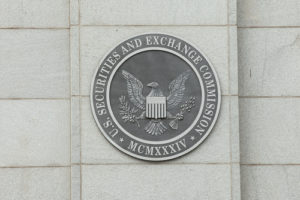SEC Awards Whistleblower $3.5 Million For “Bolstering On-Going Investigation”

On Friday, May 13th, the SEC made an award of more than $3.5 million to a whistleblower the agency described as a “company employee whose tip bolstered an ongoing investigation with additional evidence of wrongdoing that strengthened the SEC’s case.”
The SEC’s whistleblower program explicitly provides for financial rewards not only to those whose information prompts an investigation, but also to those whose information “significantly contribute[s]” to the success of an SEC action, even when the defendant’s conduct was “already under examination or investigation.” 17 C.F.R. § 240.21F-4(c).
This award and the SEC’s corresponding press release make clear that the agency wants to hear from whistleblowers who know of potential securities violations, “even if they think the SEC may already be looking into it.”
The SEC takes seriously its responsibility to safeguard whistleblower confidentiality. As a result, the details about whistleblowers who receive awards and the related SEC actions are generally sparse. Here, however, the order determining the whistleblower’s award discloses that the SEC had opened an investigation into the relevant conduct based on “media reports concerning potential misconduct.” When the whistleblower came forward, it was with information about conduct the SEC was generally already aware of. However, the whistleblower “provided certain new information . . . along with supporting documentation.”
Even so, when reviewing the whistleblower’s request for an award, the Claims Review Staff originally denied the claim, finding that the whistleblower had not “significantly contributed to the success of the Covered Action.” It was not until after a request for reconsideration and receipt of additional evidence from the staff of the SEC’s Enforcement Division about the whistleblower’s contributions, that the Commission determined an award was warranted. The Commission found particularly compelling additional evidence from the Enforcement Division which demonstrated that the whistleblower’s information caused the Enforcement staff to focus on particular conduct “and this evidentiary development strengthened the Commissions case by meaningfully increasing Enforcement staff’s leverage during the settlement negotiations.”
In another promising turn, the Commission appears to have increased the whistleblower’s award percentage based on the hardships suffered by the whistleblower as a result of his/her whistleblowing activity. In the order determining the award, the Commission explains that it “considered certain unique hardships by the Claimant.” Specifically, the Commission noted “the record demonstrates that the Claimant has been unable to find employment since reporting the misconduct and that this is significantly due to Claimant’s whistleblowing activities.”
This award, in addition to recent awards to company outsiders and those who provided information only after an initial whistleblower had broken the story, indicate that the SEC is serious about wanting, and rewarding, all valuable information.
Tagged in: Public Disclosure and Public Information, SEC Whistleblower Reward Program, Whistleblower Rewards,